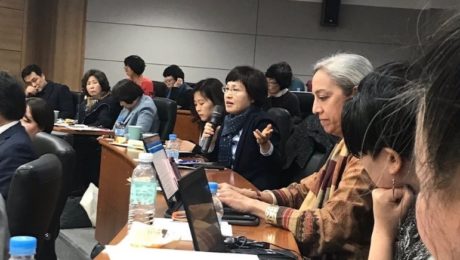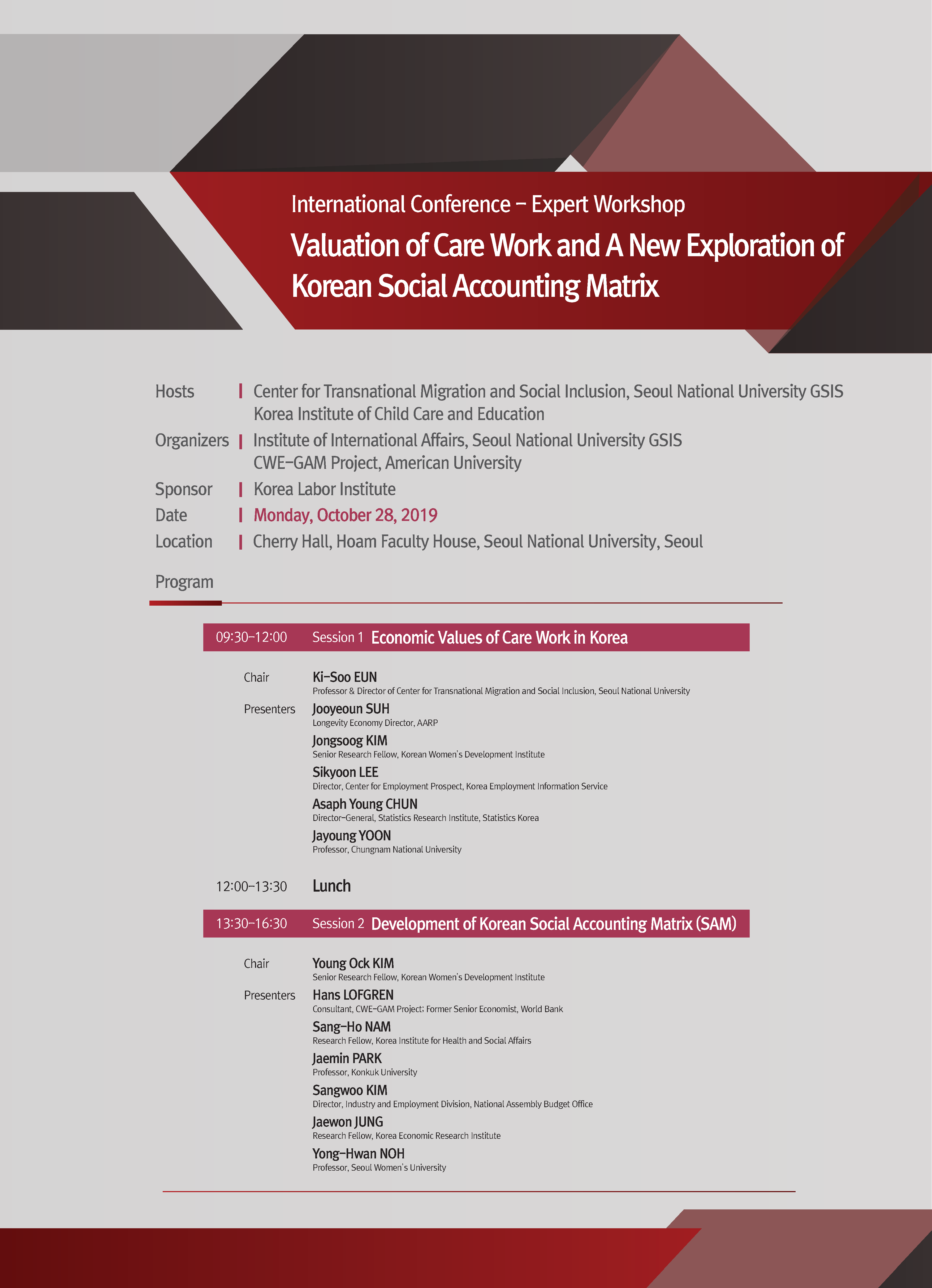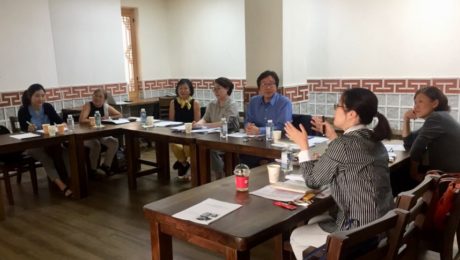GEM-Care Korea: The First Care-Focused Computable General Equilibrium Model
In a joint endeavor between the Center for Transnational Migration and Social Inclusion (CTMS) of Seoul National University’s and the Care Work and the Economy Project, the first gender-aware Social Accounting Matrix (SAM) of South Korea was constructed for the estimation of a new macroeconomic model called GEM-Care (or General Equilibrium Model for Care Analysis). This macroeconomic model, built by Martin Cicowiez and Hans Lofgren, incorporates features that reflect the sources of gender bias in the Korean economy – a gender wage gap, lower labor force participation of women relative to men, and family caregiving that falls heavily on women (Cicowiez and Lofgren 2021).
The findings from the model warn that focusing on the growth of economic production, as measured by GDP, at the expense of the unpaid care work within the family (not included in GDP), can lead to a misleading assessment of the economy’s total productivity and social well-being.
In other words, the gain in GDP-related production that comes mainly from a reallocation of labor away from non-GDP production is ultimately costly for Korea. Simulations in Cicowiez and Lofgren (2021) reveal that policies that alleviate the care burden within families will improve the well-being in the population by freeing up women’s time for employment that matches their education, thus raising women’s wages relative to men’s, and by encouraging a more equitable division of care responsibilities within the family.
As with many other developed countries, Korea faces multiple challenges related to care and gender: meeting the care needs of its rapidly growing elderly population, paving the way for stronger participation of the country’s highly educated female population in the labor force and eliminating gender wage discrimination.
Unless there is more government support for child and elderly care, increased labor supply, especially by women, can come only from an even lower fertility rate and reduced care time for children and the elderly population.
This blog was authored by Shirin Arslan, program manager for the Care Work and the Economy Project.
- Published in Asia-Pacific, Care Infrastructure, Center for Transnational Migration and Social Inclusion, Child Care, Economic Modeling, Elder Care, elderly care, Gender-Aware Macromodels, Macroeconomics, Policy, Research, Rethinking Macroeconomics, South Korea, South Korea the Center for Transnational Migration and Social Inclusion
EXTENDING THE CWE-GAM WORK BEYOND 2020: PARTNER INSTITUTION SNU LAUNCHES THE NEW CENTRE FOR TRANSNATIONAL MIGRATION AND SOCIAL INCLUSION IN SOUTH KOREA
The Care Work and the Economy (CWE-GAM) Project partner Seoul National University (SNU) launched the new Centre for Transnational Migration and Social Inclusion this September. The Centre hopes to ensure that the research and analysis undertaken on care work and the relationships developed with advocacy groups and policymakers by the CWE-GAM Project team in Seoul will lead to long-lasting impacts in the country. It plans to build on research and policy advocacy initiatives undertaken by the CWE-GAM Project in South Korea since 2017. These include a national survey of paid care workers that includes a 24-hour time use diary; a nationally representative household survey of families responsible for caring for children and/or elderly; and in-depth interviews with caregivers and care recipients. These datasets provide rich information on paid caregivers – illuminating their working conditions, wellbeing, and providing detail on the types of activities they undertake, as well as on households and how they arrange care, provide care, and share care responsibilities.
The CWE-GAM project is also estimating the care economy in South Korea in order to give a full picture of caregiving services provided by unpaid and paid caregivers in the country. Measuring the aggregate time and value of unpaid caregiving is an important step in recognizing the work of unpaid caregivers and how this labor contributes to the economy as well as the potential for developing the paid care sector. Measuring the aggregate paid care sector is an important step in better understanding the extent to which they complement and/or substitute for some of the unpaid care provided by families. A signature output of the project is a set of gender-sensitive macroeconomic tools to guide country-specific decisions on fiscal policies and public investments to reduce and redistribute unpaid care work in South Korea.
Seoul National University recognizes that the recent experience of South Korea in addressing growing care needs, alongside the goal of attaining gender equality and women’s economic empowerment provide important lessons to other countries. South Korea has the highest life expectancies and the lowest fertility rate in the world, making the need for developing a comprehensive care system to effectively and compassionately meet society’s childcare and elderly care needs and to promote a more inclusive society more urgent than ever.
The new Centre for Transnational Migration and Social Inclusion will build on the work of the Care Work and the Economy Project to advance the issues of care and social inclusion by:
1) continuing to produce new research to fully understand the nature of care work and care workers (focusing on women and migrant workers);
2) developing a social inclusion watch to help measure and continuously evaluate social inclusion in the country; and
3) becoming a hub and cultivating a network of researchers, advocacy groups, and policymakers all working together to address care and social inclusion.
The launch of the Centre for Transnational Migration and Social Inclusion is an exciting step in ensuring the Care Work and the Economy Project has long lasting impact in South Korea, and that the rich data generated by the project will continue to be used to evaluate the status of care and care workers over time. The new Centre at SNU is an innovative way for an academic institution to engage with policymakers and the gender equality and workers’ rights advocates on the front-lines driving change. By taking on the role as convener on the issue of care and social inclusion, the Centre will enhance the quality of its research by engaging partners who are experts in the local political realities as well as develop the network necessary to ensure its research is used to inform policy development and decision-making.
For more information on the Centre for Transnational Migration and Social Inclusion at Seoul National University and to support their work, please email: careworkeconomy@american.edu.




